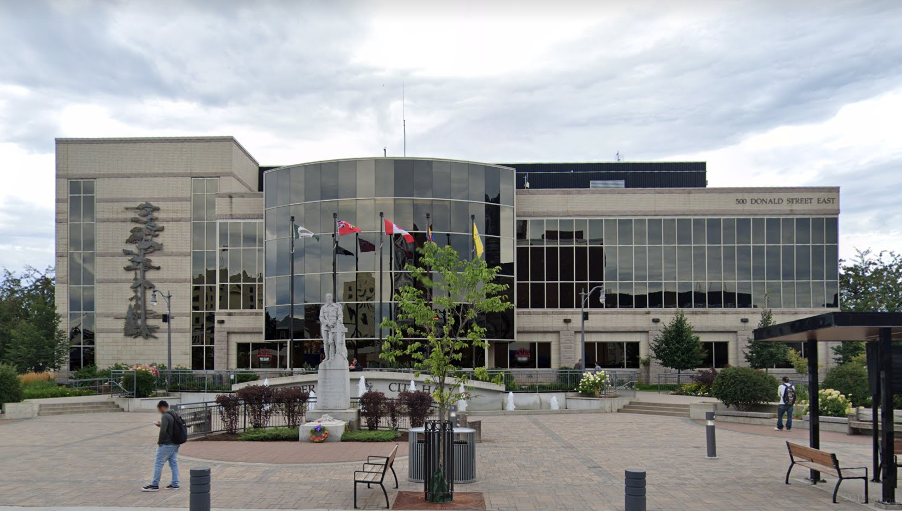THUNDER BAY – Updated distance guidelines for designated encampment areas were ratified at city council on Monday, however part of the plan might be adjusted.
At-large Coun. Trevor Giertuga received support for a referral to increase the guideline focusing on trails, sidewalks and parking lots from five metres to 10 metres.
City staff will bring more information to council on Aug. 12.
This means council has approved distance guidelines that will not allow tents to be set up within five metres of a railway or a river and within 20 metres of private property and non-residential property.
John Collin, city manager, said this is a step in addressing the challenging situation of encampments.
“I stressed one small step because city administration, myself included, have no illusion that this will address the challenges of encampments. It will not solve the problem quite frankly.
“The only way to solve the challenge of encampments is to address the housing issue that we have within this municipality and the necessary 360 support to those who live in challenging times."
Collin said it's a “challenging situation that is being experienced by pretty much every other municipality in Canada.”
The city did not consider the impact on any specific encampment locations, he said.
“Rather we took an approach where we asked ourselves, what would make the most sense and should be improved?
“One thing that is important to note is that all of these guidelines have been discussed with select representation from the encampments – those with lived experience. We did that intentionally because we want to build that cooperative attitude between us as city administration and those who are in the encampments.”
Cynthia Olsen, strategy and engagement director at the City of Thunder Bay, said they made a recommendation to include private property and non-residential property at 20 metres and a distance of five metres from train tracks and rivers.
“Those are the amendments that we proposed to add to the distance guidelines that were presented to council on June 24.
“I would also like to just mention that the federal budget in 2024 announced the additional $250 million to be cost matched by provinces dedicated to addressing encampments – specifically to support human rights-based community action plans. We believe adopting these guidelines this evening positions us as well to potentially be eligible for that funding when that stream becomes available in communities.”
Giertuga said they should be connecting with residents living in the city as well.
“We talk about trust and cooperation with the residents of encampments . . . What about the residents of the City of Thunder Bay who make up 99.99 per cent of the population?"
In an interview after the meeting, Coun. Brian Hamilton said making decisions and working with those who live in the encampments is a team approach.
“One of the things I think is important and our staff does as well, community partners and stakeholders, is that much of this effort has to happen in collaboration with the residents of the encampments too.”
Even though it might be disruptive or people might not understand the issue that well, ultimately, the city needs a cooperative approach, Hamilton said.
“There's a lot of people on the front line right now, organizations that are doing actions in the encampments, getting people the resources that they need to move out of the encampments.
“And ultimately, that's critical work. And we've got to support that work the best we can.”
"These are human beings, they're not cattle that can just be prodded here or there," Hamilton said.
“I understand the issues very well. The members of the encampments don't want to be disruptive. That's not the case, they're not here to make your lives miserable. In many cases, they are suffering, enduring circumstances in their own lives. I don't want to pretend to speak for the encampment residents either, but I know that they are not out there to do bad.
“They're members of this community and our society and ultimately want to be part of any strategy and any successes moving forward. They're here to help when they can and if they can't that needs to be recognized as well,” he said.
After the meeting, Mayor Ken Boshcoff said this issue is everywhere.
“There is no mayor, no council almost on the whole planet that isn't dealing with this issue. It is the plague of our times and coupled with opioids, every municipality is facing it everywhere.
“I am actually very pleased with the way the community is coming together. The mayor's housing task force has got representatives from everybody who always wanted input. But now we're at the same table and but it's progress and that's better than going backwards.”
